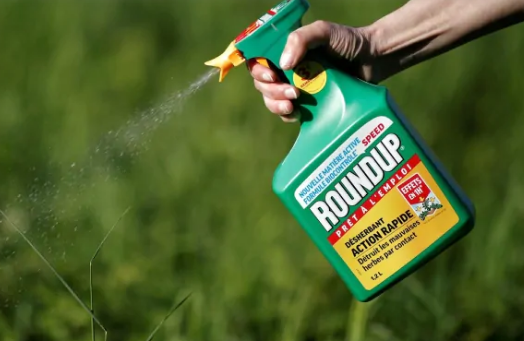By GEORGE PLAVEN, Capital Press
SALEM, Ore. (AP) — The Steam Weeder looks like an old-time vacuum cleaner and sounds like an espresso machine, with a long hose and nozzle attached to a tractor-mounted boiler heating steam to 250 degrees.
Erik Augerson, a graduate research assistant for Oregon State University, demonstrated how the technology works July 18 during Blueberry Field Day at the North Willamette Research and Extension Center, steaming along rows of blueberries to control field bindweed.
As a weed management tool, Augerson said the Steam Weeder shows promise, especially for organic growers. Superheated steam kills weeds by bursting plant cells, without damaging mulch or other farm infrastructure, as flame weeding does.
Augerson, who is earning his master’s degree from OSU in horticulture, is part of a research project trying to develop a season-long organic weed management program for small berry growers, combining steam with other mechanical treatments and certified organic sprays.
“The organic berry industry in Oregon is having a lot of trouble determining what the best and most cost-effective form of weed management is for their systems,” Augerson told the Capital Press . “We’re just trying to increase the growers’ toolbox.”
The project is supported by a $500,000 grant from the Organic Transitions Program through the USDA National Institute of Food and Agriculture. Additional funding comes from the OSU Agriculture Research Foundation and Northwest Center for Small Fruits Research.
The Steam Weeder is manufactured by Weedtechnics, a company based near Sydney, Australia. Jeremy Winer, managing director of Weedtechnics, was also on hand at the field day to meet with growers and answer questions about the product, which sprays at a rate of 2.5 gallons per minute and penetrates 1 inch deep into the ground.
“It’s not actually boiling, but it’s superheated,” Winer explained. “It explodes the (weed) cells.”
Augerson said OSU purchased the Steam Weeder over the winter and began field trials about a month and a half ago. While they are still collecting data, he said the technology could be a solid option for organic growers — depending on the cost analysis.
“We know that it can kill weeds, and that it works from a management standpoint,” Augerson said. “I think it has a lot of promise.
Depending on the size and model, Steam Weeders can cost between $16,000 and $30,000, a steep price tag for small growers. But Augerson said the value lies in decreased need for manual labor controlling weeds, allowing farms to put their workers to better use.
“There is a lack of farm labor, and it is decreasing,” Augerson said. “We want to make it so farmers can utilize their labor in different ways.”
Augerson said they will need at least two years of data before they can start writing a comprehensive, full-season weed management program for organic berries.
Credit: www.usnews.com












